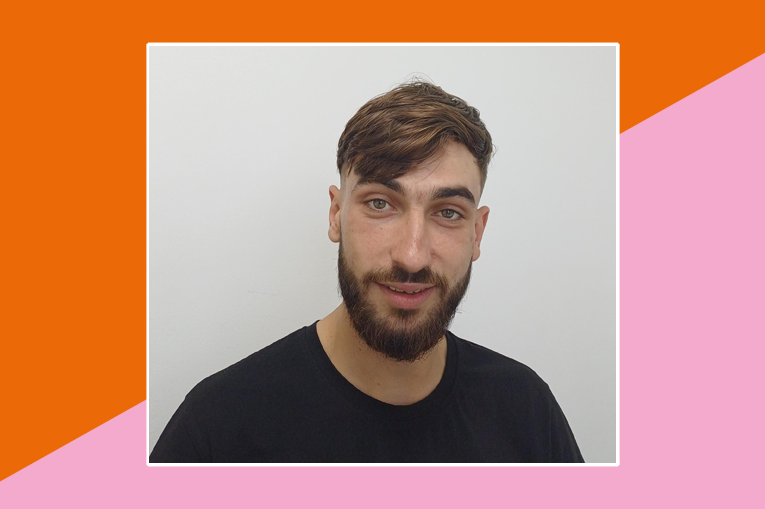“If the change doesn’t come from yourself, you’re not going to change.” - Dragos’s story

When Dragos first came into contact with Change Grow Live, he was 20 years old and sleeping rough on the streets of Hull. With support from our ReNew Hull service, he has not only secured accommodation but is navigating complex paperwork, rebuilding his health and planning a brighter future.
“I didn’t like support before. I didn’t trust anybody; I’d been very nervous and couldn’t deal with people. Last year I was a very different person. I’m more settled now; I feel more relaxed.”
Jess, his support worker, remembers their first meeting well. “I first met Dragos at the day centre where we do drop-ins. He was quite withdrawn, not very talkative, using a lot of substances, rough sleeping as well. I was assigned to be his worker and sat down with him to work out what sort of support he needed: things like accommodation, drug and alcohol support, and some physical and mental health needs.”
Just one on, the difference is striking. “When I met him, you could see that he’d just given up and didn’t know where to go” Jess says. “From then to now he’s accommodated, his physical and mental health are a lot better, his substance use has reduced massively. You can tell he’s a much brighter and more positive person.”
Advocating and building evidence
Without settled status, Dragos is unable to access local authority housing. But homelessness presents a major hurdle when applying for settled status.
“It’s pretty difficult, because you need five years’ worth of proof that you’ve been in the country,” Jess explains. “With Dragos rough sleeping and not actually accessing services until 2023, there’s a huge gap. So it’s [a case of] working really closely with the Home Office and saying: look, this is the situation.”
In the meantime, Jess has been able to link Dragos with services offering accommodation for EU nationals ineligible for public funds, which means he no longer sleeps rough. “Luckily there’s a homelessness team within the Home Office who get a lot of cases like this,” she adds. “It’s just a lot of pushing the case forward and advocating for him.”
Dreams for the future
Now that his housing situation and health are more stable, Dragos has a clear goal for his future. “I’d like to go to college, you know? I’m going to maybe go see some barbers, start a course with them. I will do it, I know this. I have a goal now. Hopefully next month I’ll start the course, then one day I’ll open my own barber shop. So if you want to have a haircut, come and find me!”
His plans to become a barber include giving back to others.
It’s a long way from the routine of life on the streets. “I was in the street every morning, nervous, because it was the same routine. And when you wake up in the same routine, it’s not good. On the streets, there are dangerous drugs. I touched a couple of them, I saw how they were, but that’s enough. I don’t want to go back to my country in a box, you know? I want to go on an airplane, looking out of the window.”
A partnership approach
The changes Dragos has made have not always been easy. He admits he was sometimes rude to those trying to help. “I realised after, they’re trying to help me and I’m being rude, so if I carry on I’m not going to receive that help anymore. It was maybe because of the drugs. But it’s alright now. I’m alright.”
Jess has seen that transformation first-hand. “From when I first met him to now it’s a real change. He was very reluctant to speak. He didn’t like us waking him up, which I wouldn’t either! But we’ve done a lot of stuff that he probably wouldn’t have got done if he wasn’t in service. We took him to the embassy, got him a new passport. We got a lot done in a year!”
Dragos credits the support but also recognises his own role in the changes. “If the change doesn’t come from yourself, you’re not going to change. If you’re just saying it and it’s just words, it’s not real. You have to show it.”


